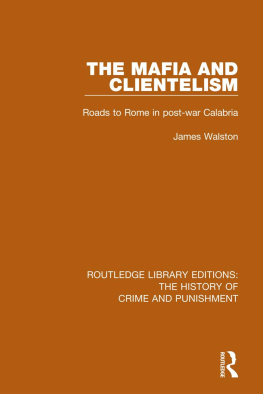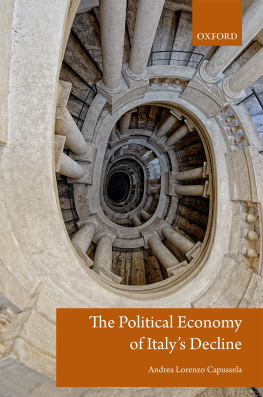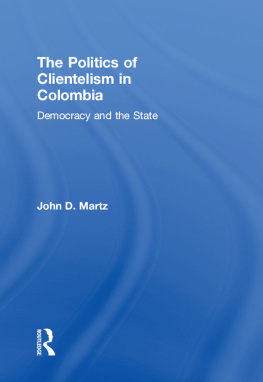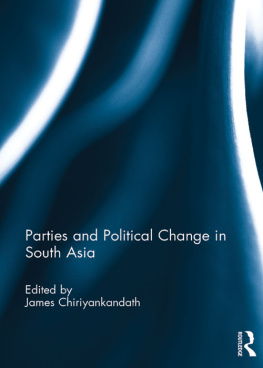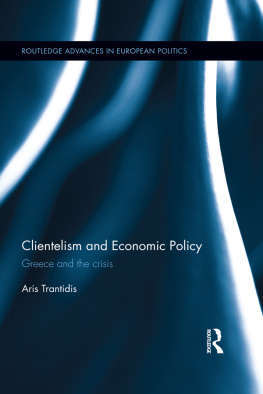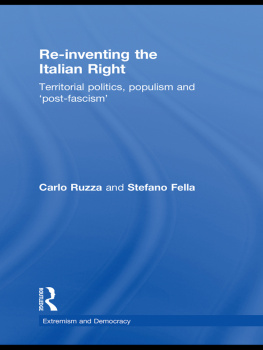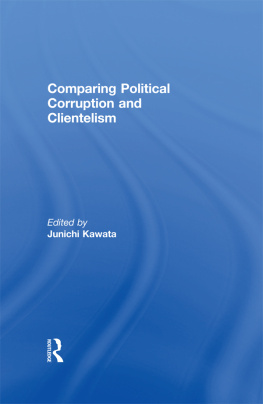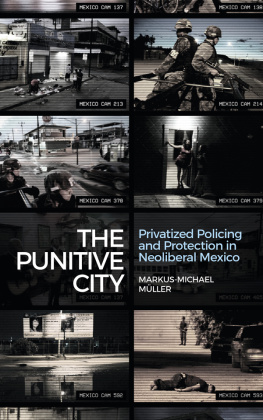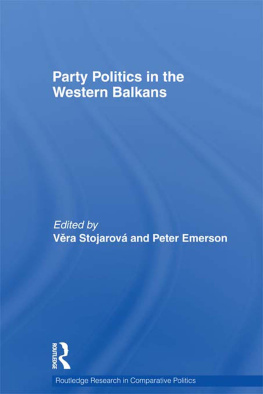ROUTLEDGE LIBRARY EDITIONS: THE HISTORY OF CRIME AND PUNISHMENT
Volume 10
THE MAFIA AND CLIENTELISM
THE MAFIA AND CLIENTELISM
Roads to Rome in post-war Calabria
JAMES WALSTON
First published in 1988 by Routledge
This edition first published in 2016
by Routledge
2 Park Square, Milton Park, Abingdon, Oxon OX14 4RN
and by Routledge
52 Vanderbilt Avenue, New York, NY 10017
Routledge is an imprint of the Taylor & Francis Group, an informa business
1988 J. Walston
All rights reserved. No part of this book may be reprinted or reproduced or utilised in any form or by any electronic, mechanical, or other means, now known or hereafter invented, including photocopying and recording, or in any information storage or retrieval system, without permission in writing from the publishers.
Trademark notice: Product or corporate names may be trademarks or registered trademarks, and are used only for identification and explanation without intent to infringe.
British Library Cataloguing in Publication Data
A catalogue record for this book is available from the British Library
ISBN: 978-1-138-94552-4 (Set)
ISBN: 978-1-315-67131-4 (Set) (ebk)
ISBN: 978-1-138-94477-0 (Volume 10) (hbk)
ISBN: 978-1-138-94491-6 (Volume 10) (pbk)
Publishers Note
The publisher has gone to great lengths to ensure the quality of this reprint but points out that some imperfections in the original copies may be apparent.
Disclaimer
The publisher has made every effort to trace copyright holders and would welcome correspondence from those they have been unable to trace.
The
Mafia and
Clientelism
Roads to Rome
in post-war
Calabria
JAMES WALSTON
First published in 1988 by
Routledge
a division of Routledge, Chapman and Hall
11 New Fetter Lane, London EC4P 4EE
Published in the USA by
Routledge
a division of Routledge, Chapman and Hall, Inc.
29 West 35th Street, New York NY 10001
1988 J. Walston
Printed and bound in Great Britain by
Biddies Ltd, Guildford and Kings Lynn
All rights reserved. No part of this book may be reprinted or reproduced or utilised in any form or by any electronic, mechanical, or other means, now known or hereafter invented, including photocopying and recording, or in any information storage or retrieval system, without permission in writing from the publishers.
British Library Cataloguing in Publication Data
Walston, James
The Mafia and clientelism: roads to
Rome in post-war Calabria.
1. Mafia History 2. Patronage, Political
Italy, Southern History 20th century
I. Title
324.204 JN5477.P3
ISBN 0-415-00368-7
Library of Congress Cataloging-in-Publication Data
ISBN 0-415-00368-7
To Nora
Contents
The beginnings of this research are in personal experiences in Calabria; these turned into academic curiosity during discussions at the Department of Social and Economic Sciences at the University of Calabria and later at the ECPR Workshop on clientelism in Florence in 1980 directed by Christopher Clapham and Jeremy Mitchell. My thanks go to all the participants and in particular to Prof. Luigi Graziano who has given continued helpful criticism since then.
For the publicly available information, I would like to thank the staffs of library of the Chamber of Deputies, of the Istituto Giustino Fortunato and of the Central State Archives, all in Rome; and of the Biblioteche Comunali in Cosenza and Reggio Calabria.
It is more difficult to thank those who gave information privately but as is the custom, I do so without mentioning names and sure that not only do they know who they are but also that they know that their help was essential to the completion of my work.
There are others throughout Calabria who helped me in practical ways and in giving me insights and sources of information which otherwise would have been difficult or impossible to tap. In particular, I am most grateful to Raffaele Pecoraro and Chiara Zannini in Cosenza; Nadia Alecci, Lidia Barone, Mimo Labate, Enzo Lacaria, Augusto and Sebastiano Di Marco in Reggio Calabria.
I would also like to thank Richard Walker and henner Hess whose comments and advice in the final reading were precious; also Charles Mill who helped clarify both form and substance.
Finally, I am most grateful to Dr Paul Ginsborg. His contribution to this research not only consisted of essential insights, comments and criticism in intellectual terms but also of a particular respect for deadlines which was imposed on both himself and myself.
None the less, despite the help gratefully received from these various quarters, the responsibility for the final product is wholly mine.
One of the problems of undertaking a study of behaviour which is condemned by a large portion of society (and in public utterances, by the whole of society) is that information is either kept secret or comes from sources which have an interest in discrediting their opposition.
Despite these disadvantages, I believe that it is possible to carry out a valid analysis even of contemporary politics. Many sources are unreliable or misleading; and these are not only newspapers and political speeches but also court reports, parliamentary inquiries and archives. There is a problem of constant evaluation of all sources used. They are the following. Scholarly analyses and accounts: those which deal with recent events suffer from the same disadvantage as my own research; the ones which deal with more distant events have been able to sift a wider variety of conflicting information.
Contemporary accounts: these include both books and newspaper articles. In practice there is often little difference between the two, except that, obviously, the former allow the author a little more time for reflection or for more information to emerge. A commentator on mafia in Sicily pointed out that news reporting, within the limits of the medium and the inaccuracies which inevitably occur is in closest constant contact with the actual people and events*.
The state archives are open until 1953 and particularly helpful in gaining an insight into the role of the prefect in the immediate post-war period.
Parliamentary proceedings give an accurate account of the visible side of public life. When taken in conjunction with other sources, it is often possible to read between the lines, as well as along them. Parliamentary inquiries and commissions are of great value in some cases while in others there is a specific desire not to uncover too much. Regional and local council proceedings have a similar value.
Court reports are of limited value, since very few cases are actually examined in the courts. When an episode is brought before the law (usually in libel cases), the examination is very detailed and often reliable.
Finally, there are the in-depth interviews. These have the same advantages and disadvantages of newspaper reports except that since the interviewee remains anonymous, very often more information is given to the foreign researcher than would be to a local journalist.

